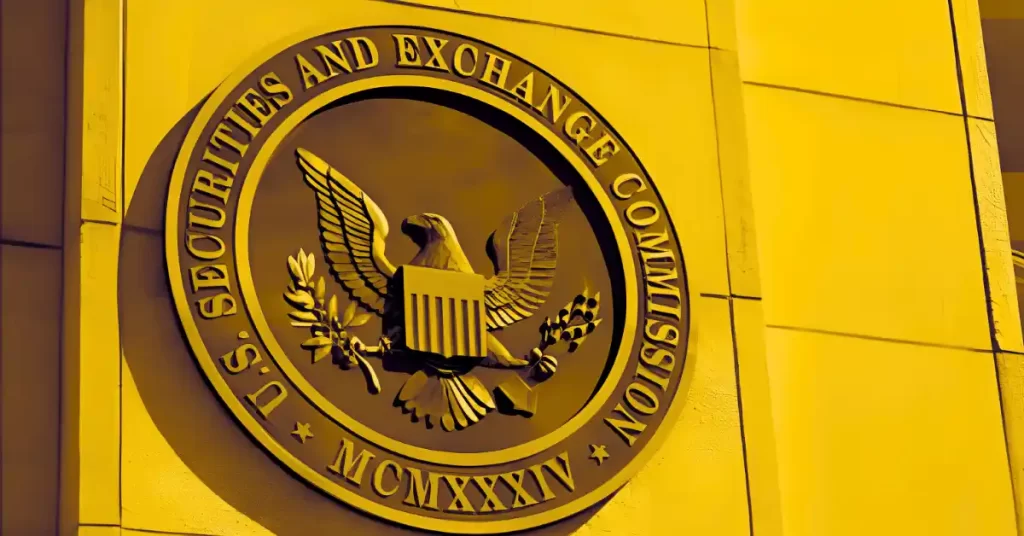The US Securities and Exchange Commission (SEC) has omitted a dedicated crypto-asset focus from its 2026 examination priorities, according to a new statement by the agency’s Division of Examinations.
Reports indicate that this change appears to align with US President Donald Trump’s pro-crypto stance, which has offered great support to the crypto ecosystem.
The announcement was made public after the agency’s Division of Examinations disclosed its priorities for the fiscal year ending September 30, 2026, on Monday, November 17. At this time, analysts discovered that this division within the SEC did not specifically outline digital assets or cryptocurrencies.
The new priorities instead emphasize fiduciary obligations, standards of conduct, custody of client assets, cybersecurity, and data privacy. When reporters reached out to the commission to comment on this claim, the SEC mentioned that these priorities omit every area the division is expected to examine next year.
While crypto previously appeared as a standalone risk category, the agency noted that its list “is not exhaustive,” leaving open the possibility that digital-asset firms may still be scrutinized through other examination lenses.
The SEC’s chair asserts that the examinations should not be a trap
The crypto industry in the US has experienced substantial growth during Trump’s administration. This is because the administration has primarily focused on easing regulations in this sector.
Reports have also acknowledged Trump’s family as great supporters of the crypto ecosystem. Their efforts in the industry were recognized after they initiated moves, including launching a trading platform, establishing a mining business, and introducing a stablecoin and token.
In a statement, Paul Atkins, the chair of the US Securities and Exchange Commission, explained that examinations in the agency play a pivotal role in enabling it to fulfill its mission. This, however, does not mean that the examinations should be a trap, said Atkins.
The chair also emphasized that the released announcement of examination priorities is important, as it will help firms prepare for an insightful conversation with SEC examiners and clarify the agency’s primary objectives.
Meanwhile, it is worth noting that the Division of Examinations is responsible for investigating various entities, including broker-dealers, stock exchanges, clearing agencies, and investment advisers. This investigation aims to ensure that these organizations strictly adhere to the federal securities regulations put in place.
While crypto was not included in the latest priorities, the division has previously signaled its interest in expanding oversight of the sector. This desire was revealed after it had earlier announced, under the leadership of former SEC Chair Gary Gensler, that it would pay attention to the “offer, sale, recommendation, advice, trading, and other activities related to crypto assets.”
With this goal in mind, the division hinted at focusing primarily on spot Bitcoin and Ether exchange-traded funds.
Regarding this news, the division shared a statement last year, pointing out that it will monitor matters arising from the unpredictable nature and activities in the crypto asset markets. It also highlighted that the team will carry out examinations of registrants providing services related to crypto assets.
The SEC turns spotlight on AI risks while rebalancing crypto oversight
The SEC also released a statement outlining its main goal, which is to address the risks associated with new technologies, specifically highlighting automated investment tools and artificial intelligence as key areas of focus.
The omission reflects a broader regulatory shift under the current SEC leadership, which has shifted away from the agency’s historically aggressive, crypto-focused enforcement stance. Over the past few months, the agency has shown an interest in creating clearer, more innovation-friendly guidelines—including exploring exemptions for emerging financial technologies.
In recent months, regulators have also been reexamining crypto-related rule proposals, some of which were introduced under the previous administration but were criticized as overly restrictive or inconsistent with the realities of business. These revised exam priorities appear to facilitate a shift away from a hostile approach.
That said, analysts warn that the lack of crypto on the priority list does not mean the industry is risk-free or beyond regulatory reach. Since the SEC can continue to examine firms based on their particular risk profiles, digital-asset companies remain within the agency’s oversight perimeter — albeit no longer at the top of its stated agenda.
Want your project in front of crypto’s top minds? Feature it in our next industry report, where data meets impact.
















 English (US)
English (US)